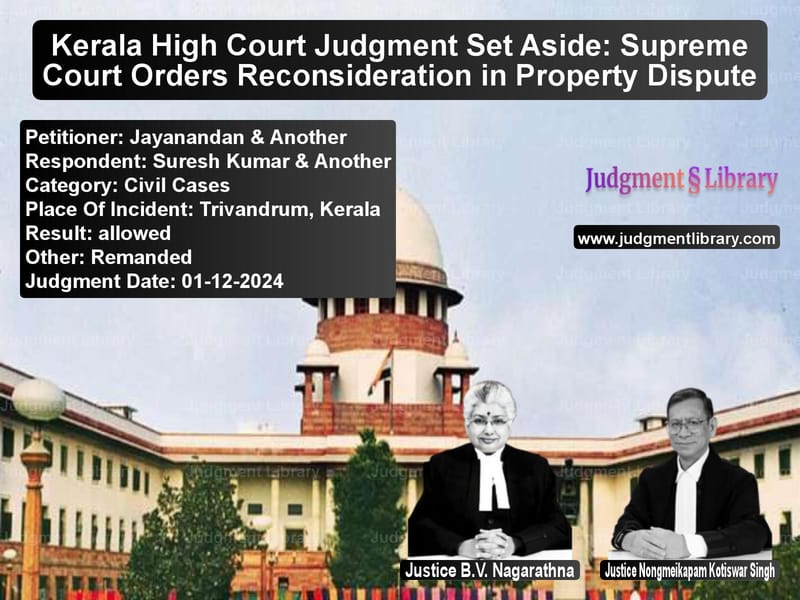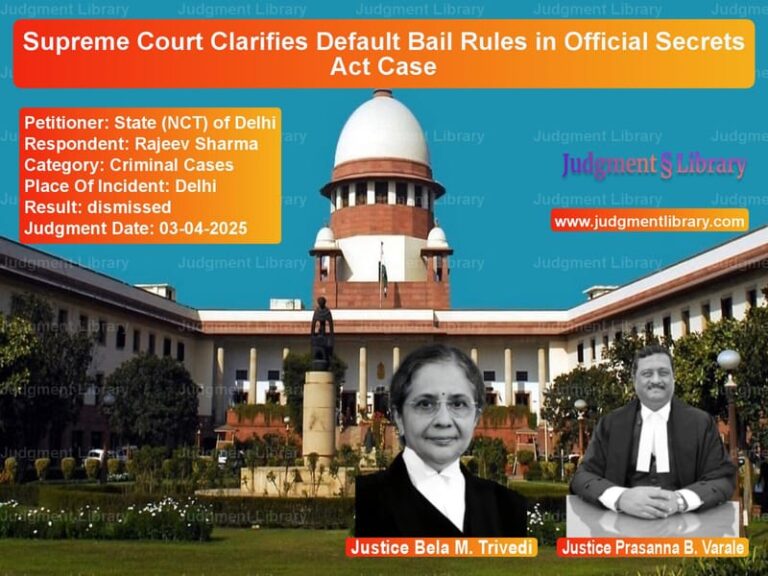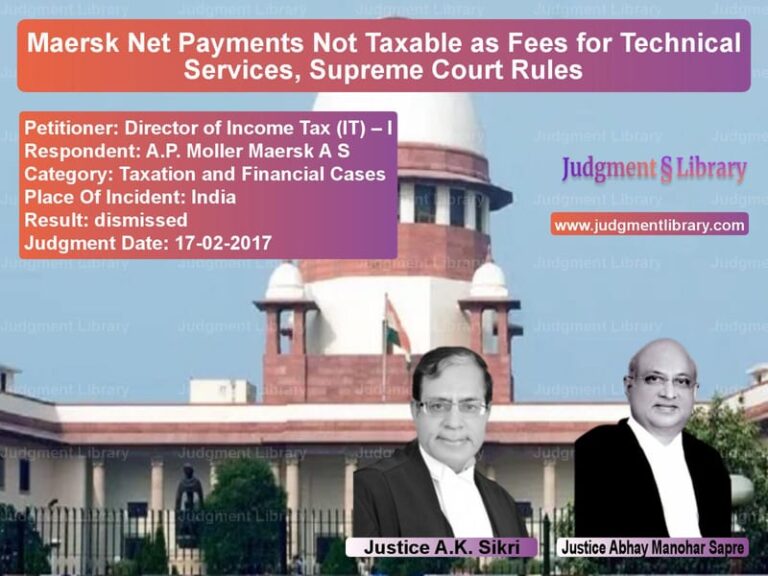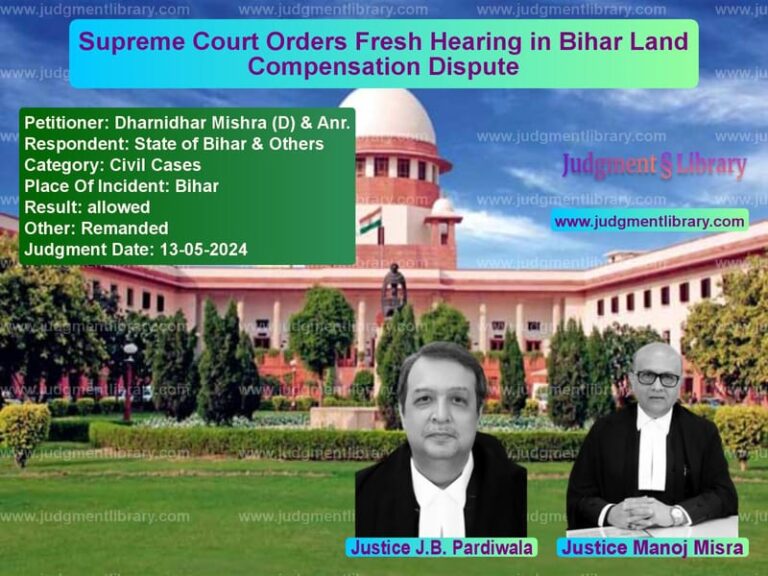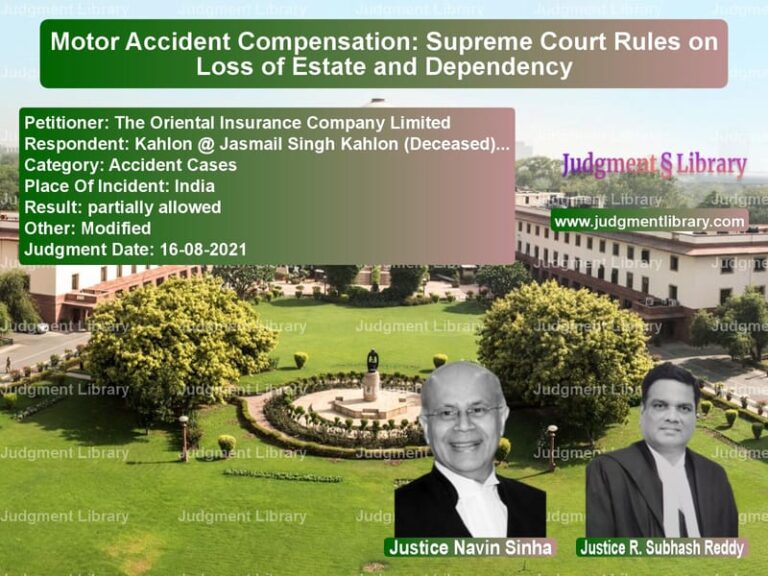Kerala High Court Judgment Set Aside: Supreme Court Orders Reconsideration in Property Dispute
The Supreme Court of India recently ruled in the case of Jayanandan & Another vs. Suresh Kumar & Another, addressing the procedural lapses in a long-standing property dispute. The case highlights the importance of due process when amending written statements and ensuring a fair trial, particularly in cases involving easementary rights.
Background of the Case
The dispute arose over a piece of land located in Athiyanoor village, Kamukincode P.O, Kodangavila, Trivandrum, Kerala. The plaintiffs, Jayanandan and his wife, acquired the land through Sale Deed No.3363/2004. Their property was immediately south of the defendants’ property. The issue began when, on May 2, 2007, the defendants cut and removed six jackfruit trees from the plaintiffs’ land. The plaintiffs alleged that this act was an attempt to create a new pathway through their property. The defendants, however, contended that they were merely widening an existing pathway.
Further tensions escalated on May 20, 2007, when the defendants attempted to remove coconut trees from the plaintiffs’ property. In response, the plaintiffs filed a suit (O.S. No. 389 of 2007) in the Additional Munsiff Court-1, Neyyattinkara, seeking a permanent injunction against the defendants to prevent further trespass and damage.
Trial Court Proceedings
The Trial Court appointed an Advocate Commissioner to inspect the property. The Commissioner’s report, submitted on July 27, 2009, found that there was an existing pathway on the western side of the suit property leading to the defendants’ land. However, the report did not establish whether the pathway was legally recognized.
The Trial Court, in its judgment dated December 7, 2009, ruled in favor of the plaintiffs, restraining the defendants from trespassing on their land. The court allowed the plaintiffs to construct a compound wall along the northern boundary of their property. The defendants did not initially claim a special right over the pathway in their original written statement.
First Appellate Court’s Decision
The defendants appealed the decision in A.S. No. 69/2010 before the Sub-Court, Neyyattinkara. During the appeal, the defendants filed an application (I.A. No. 2375 of 2010) under Order VI Rule 17 of the Code of Civil Procedure (CPC), seeking to amend their written statement. The amendment introduced a new claim of prescriptive easementary rights, asserting that the pathway had been in use for over 50 years.
The First Appellate Court allowed the amendment and, on the very same day (November 30, 2011), reversed the Trial Court’s judgment, ruling in favor of the defendants. The plaintiffs challenged this decision in the Kerala High Court.
Kerala High Court’s Ruling
In R.S.A. No. 1432/2011, the Kerala High Court partially allowed the appeal. While it upheld the plaintiffs’ right to construct a boundary wall, it agreed with the First Appellate Court that the defendants had established a prescriptive easementary right over the pathway.
Supreme Court’s Observations
The Supreme Court examined whether the First Appellate Court had followed due process in allowing the amendment and reversing the Trial Court’s decree.
On the Amendment of the Written Statement
- The Supreme Court noted that the amendment introduced a counterclaim by the defendants, asserting a right over the disputed pathway.
- However, no fresh evidence was recorded by the First Appellate Court to substantiate this claim.
- The amendment application was allowed on the same day the appeal was disposed of, depriving the plaintiffs of an opportunity to present counter-evidence.
On the Lack of Additional Evidence
The Supreme Court held:
“An opportunity had to be given to both sides to let in evidence on the amended Written Statement, particularly since the first defendant had sought to establish a right of easementary use over fifty years.”
The Court emphasized that any claim made in an amended pleading must be supported by evidence:
“In the absence of any evidence, the First Appellate Court could not have implied that there was already evidence supporting the amendment without recording any fresh evidence.”
Final Verdict
The Supreme Court set aside the Kerala High Court’s ruling and the First Appellate Court’s decision in A.S. No. 69/2010. It remanded the case back to the First Appellate Court, directing it to:
- Reconsider the appeal in light of the amendment.
- Determine whether fresh evidence needs to be recorded.
- Ensure that both parties have an opportunity to present their case fairly.
Implications of the Judgment
The Supreme Court’s ruling establishes key principles regarding the amendment of pleadings and due process:
- Amendments must be supported by evidence: If a party introduces a new claim, they must provide evidence to substantiate it.
- Opportunity for counter-evidence: The opposing party must be given a fair chance to challenge any newly introduced claims.
- Fair trial and procedural fairness: Courts must ensure that procedural lapses do not lead to unjust outcomes.
This ruling reinforces the principle that a fair trial is fundamental, and appellate courts must exercise caution when allowing amendments that significantly alter the course of litigation.
Petitioner Name: Jayanandan & Another.Respondent Name: Suresh Kumar & Another.Judgment By: Justice B.V. Nagarathna, Justice Nongmeikapam Kotiswar Singh.Place Of Incident: Trivandrum, Kerala.Judgment Date: 01-12-2024.
Don’t miss out on the full details! Download the complete judgment in PDF format below and gain valuable insights instantly!
Download Judgment: jayanandan-&-another-vs-suresh-kumar-&-anoth-supreme-court-of-india-judgment-dated-01-12-2024.pdf
Directly Download Judgment: Directly download this Judgment
See all petitions in Property Disputes
See all petitions in Landlord-Tenant Disputes
See all petitions in Specific Performance
See all petitions in Judgment by B.V. Nagarathna
See all petitions in Judgment by N. Kotiswar Singh
See all petitions in allowed
See all petitions in Remanded
See all petitions in supreme court of India judgments December 2024
See all petitions in 2024 judgments
See all posts in Civil Cases Category
See all allowed petitions in Civil Cases Category
See all Dismissed petitions in Civil Cases Category
See all partially allowed petitions in Civil Cases Category

